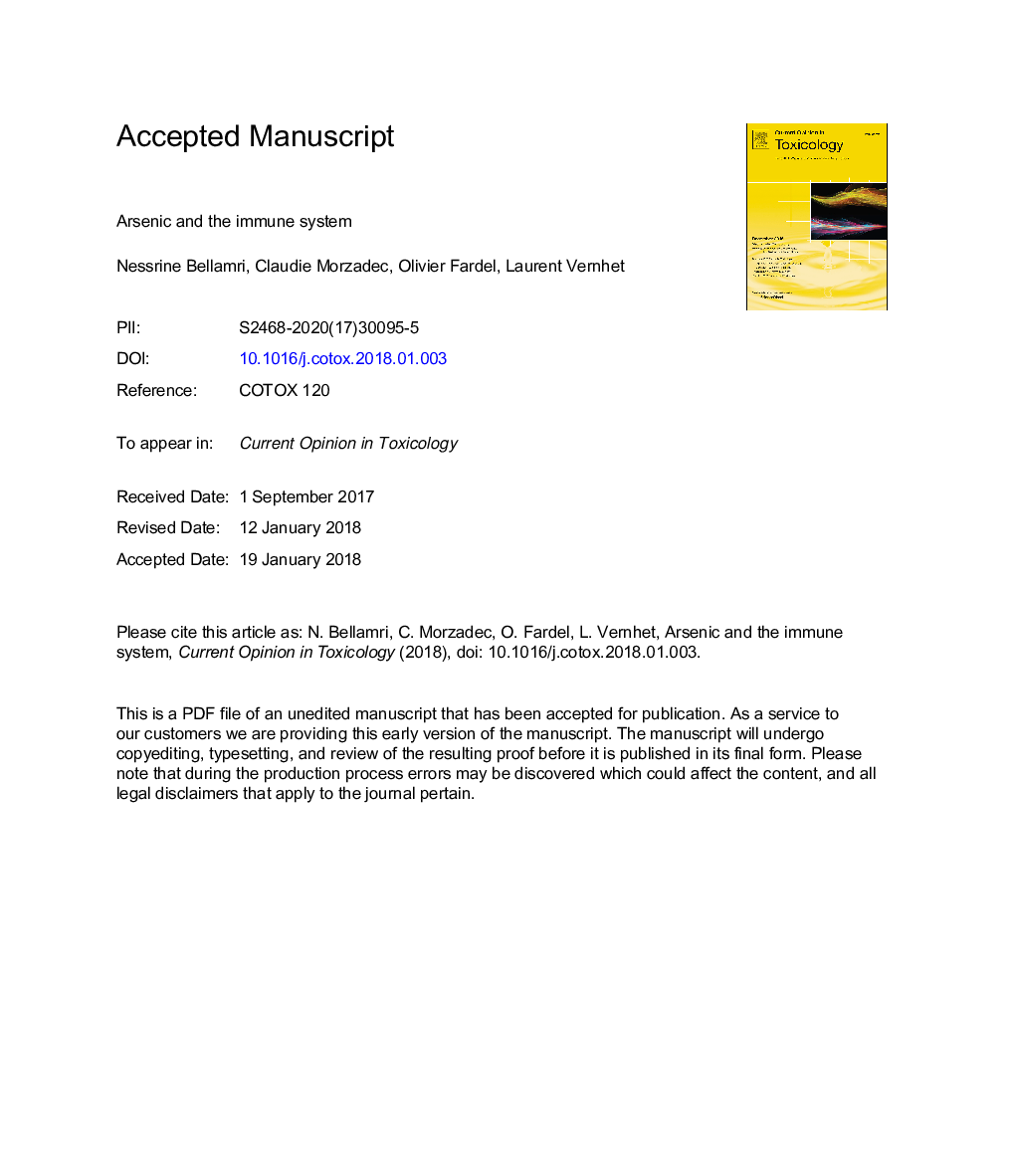| Article ID | Journal | Published Year | Pages | File Type |
|---|---|---|---|---|
| 8920177 | Current Opinion in Toxicology | 2018 | 28 Pages |
Abstract
Arsenic is a metalloid to which millions of individuals are exposed worldwide, primarily through the consumption of contaminated drinking water or food items. Chronic arsenic exposure is associated with an increased incidence of several diseases, including lung infections and skin cancers. Epidemiological and experimental evidence demonstrates that the metalloid impairs the activity of both the innate and adaptive immune systems. Arsenic alters the differentiation, activation and/or proliferation of human macrophages, dendritic cells and T lymphocytes. Arsenic immunotoxicity results from intracellular oxidative lesions modulating basal gene expression or leading to DNA damage. Arsenic also induces epigenetic effects by modulating DNA methylation and post-translational histone modifications. In addition, the metalloid has recently been found to inhibit in vitro and in vivo inflammasome activities. Arsenic immunotoxicity likely contributes to the systemic effects associated with arsenic exposure by limiting immune surveillance and/or promoting inflammation. Experimental studies also suggest that the immunosuppressive effects of arsenic efficiently prevent or treat severe immune-related diseases. The purpose of this review is to summarize the current knowledge of the impact of arsenic on the immune system.
Related Topics
Life Sciences
Biochemistry, Genetics and Molecular Biology
Biochemistry
Authors
Nessrine Bellamri, Claudie Morzadec, Olivier Fardel, Laurent Vernhet,
